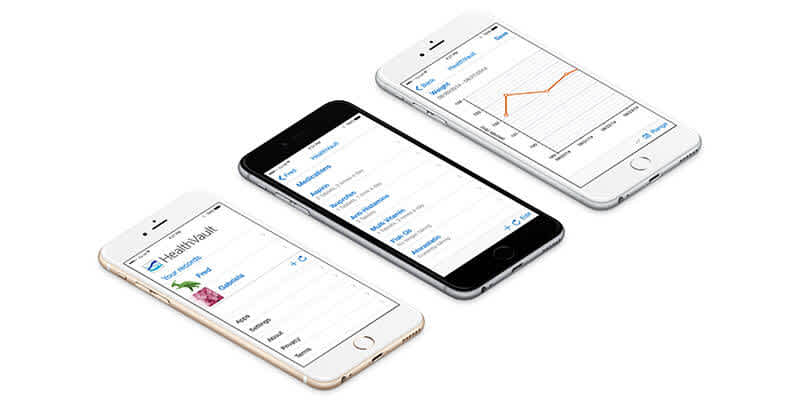Issues with current health apps
In our previous segment on digital health‚ we outlined the plethora of apps available on both iOS and Google’s Android platform. As staggering as it sounds‚ the number is around 165‚000 and‚ with more and more people starting to focus on health and well-being‚ that’s only bound to increase.
As output rises‚ however‚ our concerns are centred on quality – especially in relation to Microsoft’s offering. For quite a while‚ the firm has been boasting a diverse range of tools aimed at capturing patients’ health data. So where are they now‚ how have they fared‚ and‚ if anything’s gone wrong‚ what can the tech giant do to get itself back in shape? Our preliminary assessment is simple: all is not well.
The Microsoft offerings
To begin with‚ Microsoft had four major offerings: Microsoft Health‚ HealthVault‚ MSN Health and Fitness‚ and Xbox Fitness. Which‚ of course‚ begs the question: why would anyone need or want so many mediums for logging health data and receiving fitness information from the same provider – especially since there were only subtle differences between them? As it turned out‚ the tools were misunderstood as collectively they had generated a good deal more confusion than they had offered means for boosting health. This mistake proved costly‚ Microsoft having to close several services that overlapped and which were becoming difficult to run.
Consolidation was a wise idea‚ so what next for Microsoft?
So what’s the status now? Well‚ Microsoft intends to streamline its offerings and has already shut down MSN Health on the grounds that users did not appear to find much value in the app. In 2016‚ then‚ the company announced it would pull down the shutters at Microsoft Health too and may stop production of its fitness hardware‚ Microsoft Band.
Of course‚ a tight focus should have been the company’s strategy from the very start‚ allowing it to build one quality offering across several platforms rather than get distracted with multiple projects. Still‚ it got there in the end. The problem is that HealthVault – now Microsoft’s core health product – isn’t exactly what you’d call in good shape.
So what are the issues with HealthVault?
Launched in 2007‚ HealthVault has not since gone through any major improvements. The Windows 10 app‚ for instance‚ actually uses Windows Hello for its security and feels rather dated. If you use Android or iOS‚ similarly‚ you’re out of luck – as yet‚ no apps have been created for them.
It’s also worth considering that one major hallmark of a quality health app is that it allows syncing with other apps. Many of those regularly used by colleagues at hedgehog lab‚ for instance‚ enable high levels of integration with third party providers‚ Gyroscope being a good example since it mixes its central offering with travel‚ photography and more. HealthVault‚ needless to say‚ does not facilitate such seamlessness – another reason it needs to be revisited and given a complete makeover. Despite regulatory hurdles‚ healthcare innovation is heading towards a centralised assistive system‚ making HealthVault’s lack of integration even more damning.
![[object Object] [object Object]](http://images.ctfassets.net/o6514hijae09/4Xjp1OGy8UB91tRHAXKkoY/be024d2bdfbf3e418d2906b8d59dcef1/Gyroscope_picture.png)
Users have also complained about the quality of the website‚ having faced difficulties due to incomplete and sometimes incomprehensible information. The site likewise asks for a lot of sensitive details‚ which users may be unwilling to share due to privacy and security concerns.
What can Microsoft do now to improve its health offerings?
As thought leaders in app development‚ we would suggest Microsoft needs to do two things. Firstly‚ at an implementation level‚ it needs to ease its sign in procedure and allow easy onboarding. Secondly‚ at a conceptual level‚ the offerings must be raised; currently the basic service that it provides includes new clients to sign up for its email service. This allows the patient’s doctor to send information to the HealthVault directly‚ at a cost of $9/year for up to 100 pages.
The message from the tale is then clear: Microsoft must improve its offering by stripping back distractions to concentrate on a customer-centred platform that will put its services back on track.
References:
– A Quick Guide to Microsoft’s Health Offerings
– Microsoft’s HealthVault puts your medical records online and in your hands — sort of
– The State of the Microsoft Health Platform
– Microsoft to shutter MSN Health & Fitness app‚ but Microsoft Health app to stay





